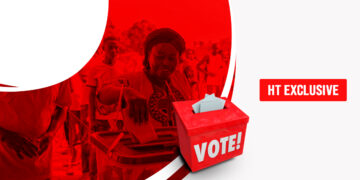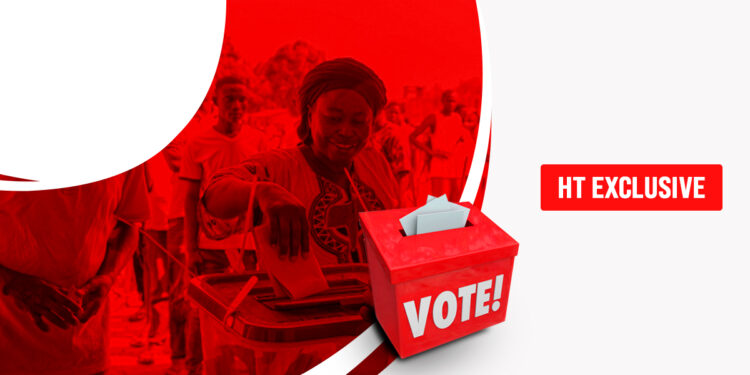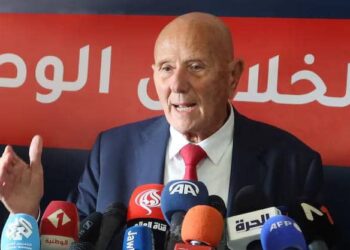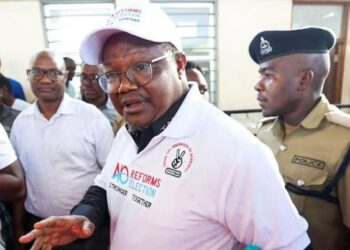By John Ikani
The year 2024 promises to be an electoral rollercoaster in Africa, with more polls scheduled than Beyoncé has costume changes.
But unlike Queen Bey’s dazzling spectacles, the elections could have real consequences for the continent’s democratic trajectory.
The question on everyone’s mind, from dusty villages to air-conditioned conference rooms: will the elections be a tango with democracy or a conga line with dictators?
North Africans wonder if the elections will be a chaabi for the streets, or a kasbah whisper for the palace, while their southern counterparts worry if the polls will be a gumboot stomp for justice or a sangoma’s rattle for manipulation.
Elsewhere in East Africa, people hope the forthcoming polls will be a ngoma beat for progress, not a silent nyati retreat for stagnation, while in West Africa, people pin their hopes on a talking drum dialogue for accountability, not a balafon solo for self-interest.
Will their aspiration be met? To begin with, let’s take a look at the polls lined up for 2024.
Elections to watch out for
No fewer than 16 African countries will be heading to polls to elect presidents. They include Rwanda, South Sudan, Algeria, Tunisia, Mauritania, Chad, Mali, Burkina Faso, Senegal, Ghana, Guinea Bissau, South Africa, Namibia, Comoros and Mozambique.
READ ALSO: NYPF Hails President Tinubu Over Assent To New Student Loans Bill
Other countries like Togo, Botswana, Mauritius and Madagascar will be holding just parliamentary elections.
The polls will be coming at a time when countries across the continent are facing escalating debt burdens, internal conflicts, soaring inflation, high unemployment, among others.
East Africa
Rwanda is one of the East African countries set to hold Presidential elections in July this year. Only two candidates have so far declared intent to contest for the nation’s top job.
They include incumbent President Paul Kagame who is seeking a fourth term and Frank Habineza, leader of the opposition Green Party.
Although Renowned for his role in presiding over peace and economic growth since the end of the 1994 Rwandan genocide, Kagame has been widely accused of suppressing free speech and incarcerating his political opponents.
South Sudan, a nation of approximately 11.2 million is also expected to hold Presidential elections in December barring any last-minute change of plans.
North Africa
In North Africa, Algeria is expected to hold a presidential election in December. Incumbent Abdelmadjid Tebboune is eyeing a second term.
Tebboune could be battling opposition from former Prime Minister, Ali Benflis; president of the Workers’ Party (PT), Louisa Hanoune; singer and political activist, Lounis Aït Menguellet; President of the Democratic and Social Union and former figure of the Hirak movement, Karim Tabbou as well as the first declared candidate, Omar Aït Mokhtar.
Elsewhere in North Africa, specifically Tunisia, several candidates are vying for the top position, including incumbent Kaïs Saïed who had in recent years consolidated his hold on power in a manner the opposition described as authoritarian.
With Saeid expected to win the October poll, prevailing economic challenges and increasing unemployment rate are hot campaign materials for the opposition who analysts say stand little chance of defeating the ‘dictator’ as they fail to forge a united front.
Central Africa
Chad is the only Central African country where polls are expected to be held in October. Transitional President Mahamat Déby who seized power after the death of his father, Idris Deby, will be on the ballot.
However, not much is yet known about opposition in the race. Just recently Deby appointed former opposition leader Success Masra as Prime Minister and charged him with the task of organising the elections.
West Africa
Formerly known as Africa’s coup belt, the West African region holds promises of election from the junta in Mali if they stay true to their word. In September, junta spokesman Abdoulaye Maiga announced that Polls scheduled for 4 and 18 February have been “slightly delayed for technical reasons.”
While no candidate has officially declared, potential contenders include Assimi Goïta, transitional president and leader of the Patriotic Movement for the Salvation of Mali (MPM), and Tiébilé Dramé, president of the Party for National Renaissance (Parena).
Similarly, Burkina Faso, a nation of approximately 22 million people led by Captain Ibrahim Traore since 2022 is due to hold elections in 2024. However, threats of increasing jihadist attacks may see the junta further push back on their promise for “democratic transition within the shortest possible time.”
Away from Junta-controlled Mali and Burkina-Faso, Senegal’s presidential election, scheduled for February 25, is generating significant attention both domestically and internationally. 200 candidates have declared their intention to run. The final list of candidates will be announced by January 20.
Among the top contenders are Amadou Ba, the outgoing Prime Minister and candidate of the ruling coalition Benno Bokk Yakaar, Ousmane Sonko, leader of the Pastef party, and Karim Wade, son of former president Abdoulaye Wade and candidate of the Yewwi Askan Wi coalition.
Also, a presidential election is expected to be held in Ghana on December 7th as President Nana Akufo-Addo prepares to step down after completing two terms.
The top contenders in the race to succeed Akufo-Addo are Vice-President Mahamudu Bawumia who secured the ruling party’s (New Patriotic Party) presidential nomination. He will be facing opposition from National Democratic Congress candidate, ex-president John Dramani Mahama.
Some other West African countries including Mauritania and Guinea Bissau are billed to hold elections. Although the dates for the polls are yet undecided.
Southern Africa
South Africa’s presidential election is the most anticipated in the Southern Region with analysts predicting that the ruling African National Congress will face its most competitive electoral challenge since the end of apartheid in 1994.
The election season isn’t the usual as it coincides with 30 years post-apartheid. There are already fears among the ANC faithful that after three decades in power, the party may not garner the necessary 50 percent of votes needed to stay in power.
It is left to be seen whether Incumbent President Cyril Ramaphosa will secure re-election or not in the presidential and parliamentary polls expected between May and August.
Asides South Africa, Comoros, Mozambique and Namibia are also expected to hold Presidential Polls this year, the details of which are very sketchy.
Will Africa’s 2024 Elections Embolden Dictators Or Revitalise Democracy
On the one hand, there are encouraging signs. A new generation of voters is rising, one that wasn’t born under the shadow of authoritarian rule. They’re tech-savvy, politically aware, and fed up with the status quo.
As Ivorian youth activist Hervé Yaméogo quipped, “We’re not interested in inheriting power struggles, we want to inherit a functioning state.”
But on the other hand, the spectre of authoritarianism still looms large. Incumbents are clinging to power like barnacles on a ship’s hull, using every trick in the book – from voter intimidation to ballot box stuffing and constitutional amendments – to stay afloat.
As Gambian President Adama Barrow bluntly put it, “Some African leaders see elections as a tool to legitimize their stay in power, not as a way to hand over power.”
And let’s not forget the ever-present shadow of coups and military interventions, the unwelcome guests at Africa’s democratic party.
However, even the sturdiest dictatorships are feeling the heat. The world is watching, and the days of unaccountable rule are numbered. As Ghanaian satirist Kwaku Sintim Misa puts it, “African leaders are like overripe plantains – they eventually have to fall.”
Whether that fall comes in 2024 or a few years down the line, one thing’s for sure: Africa’s democracies are evolving, albeit with the occasional hippo-related hiccup. And that, is something to be cautiously optimistic about.
So, as we watch the 2024 elections unfold, it will be worthwhile to remember: democracy is messy, sometimes chaotic, but ultimately beautiful thing.
It’s like a toddler learning to walk – there will be stumbles, wobbles, and the occasional face-plant into a bowl of fufu.
But with a little patience and a lot of support, those wobbly steps can eventually lead to a confident stride.
Ultimately, the future of African democracy rests not just on ballots and rallies, but on the collective will of the people.
Will they demand transparency and accountability? Will they stand up to intimidation and manipulation? Only time will tell.

































